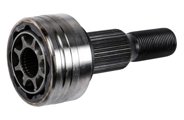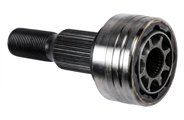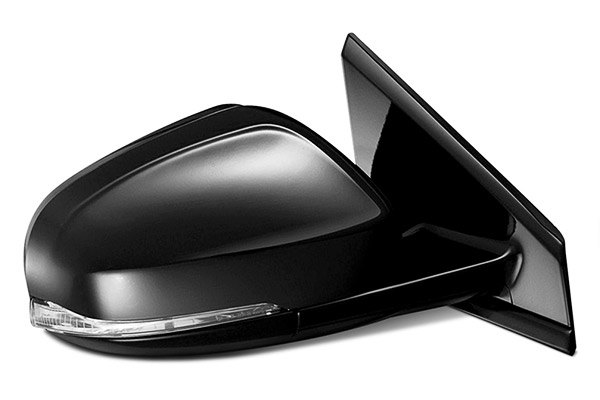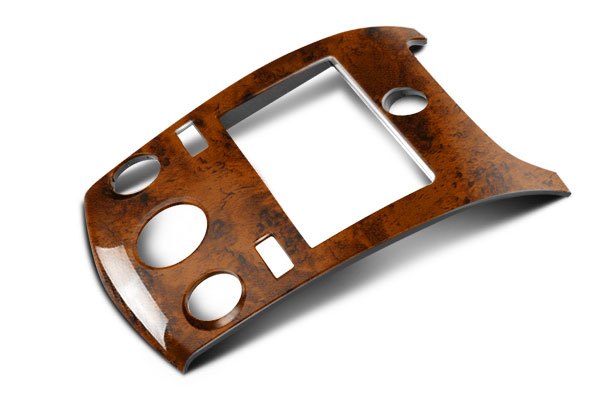دسته بندی ها
-

سر پلوس عقب سمت راننده سوزوکی XL-7 GLS 2007
2007 suzuki xl 7 gls rear driver side cv joint -

سر پلوس عقب سمت شاگرد سوزوکی XL-7 GLS 2007
2007 suzuki xl 7 gls rear passenger side cv joint
سر پلوس عقب سوزوکی XL-7 GLS 2007 | قیمت سر پلوس عقب سوزوکی XL-7 GLS 2007 | فروش سر پلوس عقب سوزوکی XL-7 GLS 2007 | انواع سر پلوس عقب سوزوکی XL-7 GLS 2007 | خرید سر پلوس عقب سوزوکی XL-7 GLS 2007 اتصالات سر پلوس سوزوکی XL-7 GLS 2007 | قیمت سر پلوس سوزوکی XL-7 GLS 2007 | فروش سر پلوس سوزوکی XL-7 GLS 2007 | انواع سر پلوس سوزوکی XL-7 GLS 2007 در خودروی دیفرانسیل جلو. همه خودروهای دیفرانسیل جلو دارای اتصالات سوزوکی XL-7 GLS 2007 | لوازم یدکی سوزوکی XL-7 GLS 2007 | لوازم سوزوکی XL-7 GLS 2007 | قطعات سوزوکی XL-7 GLS 2007 | قطعات یدکی سوزوکی XL-7 GLS 2007 | لوازم اسپرت سوزوکی XL-7 GLS 2007 سرعت ثابت یا اتصالات در هر دو انتهای میل محرک هستند اتصالات داخلی محورهای محرک را به گیربکس متصل می کند، در حالی که اتصالات بیرونی محورهای محرک را به چرخ ها متصل می کند. بسیاری از خودروهای دیفرانسیل عقب و چهار چرخ محرک و همچنین کامیون ها دارای اتصالات هستند. اتصالات برای انتقال گشتاور از گیربکس به چرخهای محرک با سرعت ثابت و در عین حال سازگاری با حرکت بالا و پایین تعلیق مورد نیاز است. در خودروهای دیفرانسیل جلو، مفاصل ، گشتاور را در حین پیچها به چرخهای جلو میرسانند. دو نوع رایج از اتصالات وجود دارد: یک نوع توپی و یک نوع سه پایه. در خودروهای دیفرانسیل جلو، اتصالات نوع توپ در قسمت بیرونی محورهای محرک ( مفاصل خارجی ) استفاده می شود، در حالی که اتصالات نوع سه پایه بیشتر در قسمت داخلی ( مفاصل داخلی ) استفاده می شود. بوت مشترک خوب به نظر می رسد چکمه مشترک خوب به نظر می رسد. یک اتصال با یک گریس مخصوص بسته بندی شده و با چکمه لاستیکی یا پلاستیکی محکم بسته می شود که با دو گیره در جای خود نگه داشته می شود. یک مفصل به هیچ گونه تعمیر و نگهداری نیاز ندارد و می تواند بسیار دوام بیاورد، تا زمانی که بوت مفصل محافظ آسیب نبیند. دیدن خودرویی با بیش از 300000 مایل با اتصالات هنوز غیر معمول نیست رایج ترین مشکل در مفاصل زمانی است که چکمه محافظ ترک می خورد یا آسیب می بیند. هنگامی که این اتفاق می افتد، گریس خارج می شود و رطوبت و کثیفی وارد می شود و باعث می شود که مفصل سریعتر ساییده شود و در نهایت به دلیل عدم روانکاری و خوردگی از کار بیفتد. معمولاً چکمه های بیرونی ابتدا می شکنند، زیرا باید حرکت بیشتری نسبت به چکمه های داخلی تحمل کنند. چکمه های معمولاً در طول بازدیدهای منظم تعمیر و نگهداری بازرسی می شوند. مکانیک شما به دنبال ترک، پارگی و سایر آسیب ها خواهد بود.
..........................................................................................................
2007 suzuki xl 7 gls rear cv joint | 2007 suzuki xl 7 gls rear cv joint sale | 2007 suzuki xl 7 gls rear cv joint buy | 2007 suzuki xl 7 gls rear cv joint price Connections 2007 suzuki xl 7 gls | 2007 suzuki xl 7 gls parts | 2007 suzuki xl 7 gls accessory | 2007 suzuki xl 7 gls parts sale | 2007 suzuki xl 7 gls parts buy | 2007 suzuki xl 7 gls parts price In the front differential. All front differential vehicles have fixed speed connections or connections at both ends of the drive shaft. Internal connections connect the drive shafts to the gearbox, while external connections connect the drive shafts to the wheels. Many rear-wheel drive and four-wheel drive vehicles as well as trucks have connections. Connections are required to transfer torque from the gearbox to the drive cycles at a constant speed while adapting to the up and down motion of the suspension. In front-wheel drive vehicles, the joints deliver torque to the front wheels during cornering. There are two common types of joints: a hinge type and a tripod type. In front-wheel drive vehicles, ball-type fittings are used on the outside of the drive axles (outer joints), while tripod-type fittings are mostly used on the inside (inner joints). Joint boots look good Joint boots look good. A joint is packed with a special grease and fastened with a rubber or plastic boot that is held in place with two clamps. A joint does not require any maintenance and can be very durable, as long as the boot of the protective joint is not damaged. It is not uncommon to see a car with more than 300,000 miles of connections. The most common joint problem is when the safety boots crack or are damaged. When this happens, the grease comes out and moisture and dirt enter, causing the joint to wear out more quickly and eventually failing due to lack of lubrication and corrosion. Outer boots usually break first because they have to withstand more movement than inner boots. Boots are usually inspected during regular maintenance visits. Your mechanic will look for cracks, tears and other damage.
مارا دنبال کنید
Copyright © 2016-2020 KHODROID.com. All rights reserved.
طراحی سایت توسط نونگار پردازش












